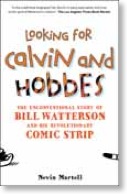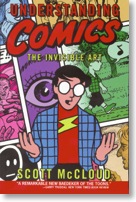Looking for Calvin and Hobbes
It turns out that I’m not alone. Very few people know much about the reclusive Watterson, including the author Martell. I was hoping to find out how Watterson sees the world, but that’s not really what this book is about. Martell uses the analogy in his book of the archaeologist. Instead of Watterson being a complete puzzle that Martell can put together, he found himself instead being an archaeologist on Watterson’s life due to his habit of avoiding the public eye. The puzzle is there, but you don’t know how the pieces fit together and know that you don’t have the entire puzzle anyway.
Instead, continuing the archaeological metaphor, you could say that this book similar to the idea of placing a paper over a stone and taking a rubbing of it with charcoal. You get the outline of the subject, but not really much insight into the inner workings of the artifact from which you took the rubbing.
Similarly with Watterson’s life, Martel has taking rubbings far and wide that describes the outer edges and textures, but doesn’t reveal too much of Bill Watterson himself.
Still, the book is interesting in many other ways. Martell examines the impact of Calvin and Hobbes on modern culture, the role of comics and the power they have in our society, should those stories be told well. In this respect it reminds me of some of the messages in Scott McCloud’s “Understanding Comics”.
The book is also an autobiography of Martell himself, although I don’t think it was initially his intent to show this part of himself.
“Looking for Calvin and Hobbes” is a worthwhile read for insights into the comics industry and that part of our society. It is a homage to Calvin and Hobbes the comic strip. It is less so an insight into Bill Watterson himself, which is probably what Watterson prefers. I tend to think that wisdom is best gleaned from those who profess to not have it and instead claim to be “ordinary”. There are a few gleanings here and there but it is clear that this is only the charcoal rubbing of the surface.
Nevertheless, I recommend it.




